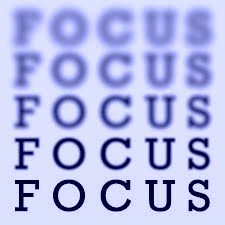As a vision coach, I often hear people make statements about their eyesight which make me cringe. They’ll say “I’m blind without my glasses!” or “Everyone in my family has bad eyes” or “Since my job requires looking at a computer screen all day, I know my eyesight is just going to get worse”. These remarks can remind me of my own mother, when I was a child in thick eyeglasses. She constantly worried about “Nancy’s bad eyes”, making me feel hopeless and defective.
With new clients, I’ll point out how vision varies, with the amount of natural light, your level of fatigue or hunger or thirst or even how happy (or not!) you are to be seeing what you’re seeing. So if vision can momentarily slump when our energy slumps, then rebound when we take a nap or go for a walk in Nature, isn’t it at least theoretically possible that if we take better care of our precious human energy, our vision might keep improving?

When someone is very discouraged about their eyesight, it can be too big of a leap to embrace what feels like a happy-sappy Pollyanna idea of “My vision is getting clearer and more relaxed by the day!”. In that case I may see if the person is willing to accept the possibility of seeing colors more vividly (even though the eye chart shows no change in acuity yet), or seeing a tiny bit better after dark, or softening some of their straining-to-see forehead or squinting wrinkles. Sometimes we’re reluctant to let go of our self-limiting beliefs. Do you tell yourself “I can’t ……” (fill in your personal favorite) related to your vision? What if you could?

When you want to motivate a child to do better, it’s not helpful to belittle him or her — encouragement is needed. Your eyes are the same, and will work hard for you for many years if they feel appreciated, not like they’re a big bother to you, a cross you have to bear. When I can see well in what used to be a difficult situation for me, say driving in the rain, I try to remember to notice this success, not just take it for granted. And my nightly gratitude list often includes mention of something positive about my vision.
When you worry about your vision declining, do you realize you’re actually imagining or visualizing seeing worse? You are carving those pathways in your visual brain deeper, convincing your mind and body “I can’t see that well now, and the blur is likely to keep increasing”. This is not a healing strategy! Why not try imagining seeing better, and being grateful for what you do see pretty well at the moment, even if you’re not completely satisfied with it. And hold some optimism about seeing even better tomorrow.
get help on our Facebook Group!


I wore strong glasses, then contact lenses, from age 5 into my 40s. While making many mistakes, eventually l learned how to improve the way I use my eyes and to see in a more relaxed, healthy manner. It is my pleasure to coach others to do the same. Visit me at https://NancyLNeff.com.